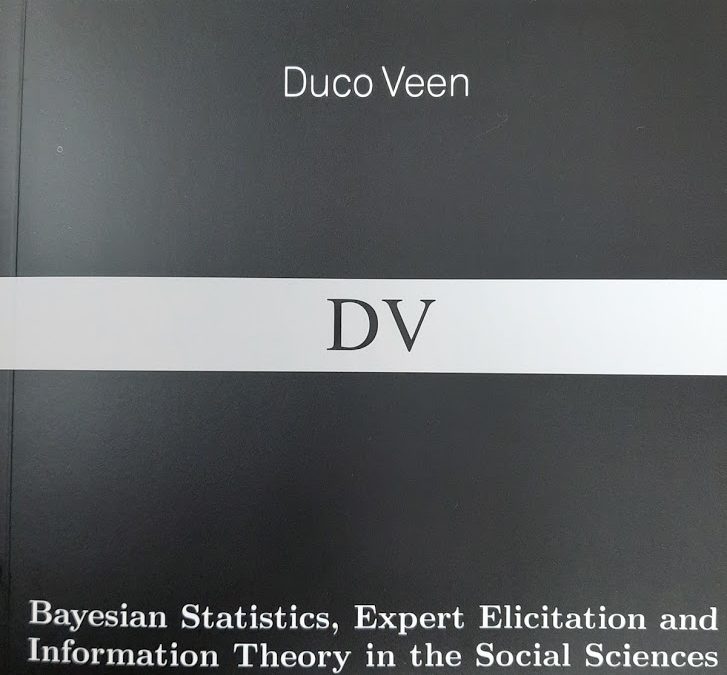Alternative Information: Bayesian Statistics, Expert Elicitation and Information Theory
In this dissertation it is discussed how one can capture and utilize alternative sources of (prior) information compared to traditional method in the social sciences such as survey research. Specific attention is paid to expert knowledge.
In Chapter 2 we propose an elicitation methodology for a single parameter that does not rely on specifying quantiles of a distribution. The proposed method is evaluated using a user feasibility study, a partial validation study and an empirical example of the full elicitation method.
In Chapter 3 it is investigated how experts’ knowledge, as alternative source of information, can be contrasted with traditional data collection methods.
In Chapter 4 an alternative way of enhancing the amount of information in a model is proposed. We introduce Bayesian hierarchical modelling to the field of infants’ speech discrimination analysis.
In Chapter 5 we reflect on issues that come along with the estimation of increasingly complicated models.
In Chapter 6 we combine the previous chapters. We take more complex models and get experts to specify beliefs with respect to these models. We extend the method developed in Chapter 2 to elicit experts’ beliefs with respect to a hierarchical model, which is used in Chapters 4 and 5. In specific, we concern ourselves with a Latent Growth Curve model
and utilize the information theoretical measures from Chapter 3 to compare the (groups) of experts to one another and to data collected in a traditional way. We do this in the context of Posttraumatic Stress Symptoms development in children with burn injuries.



